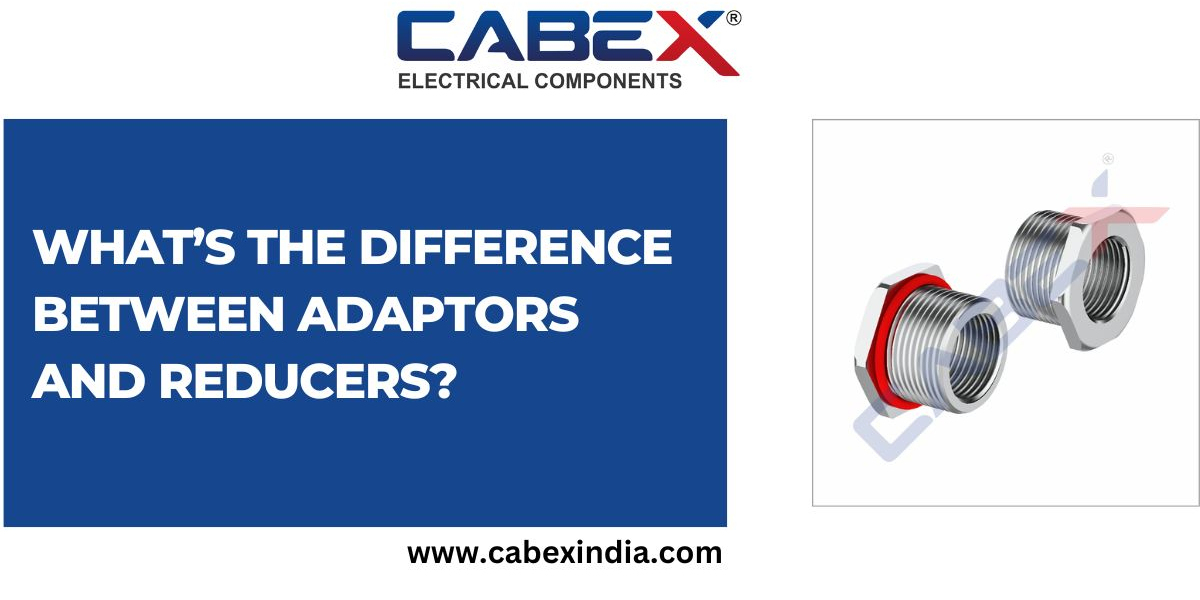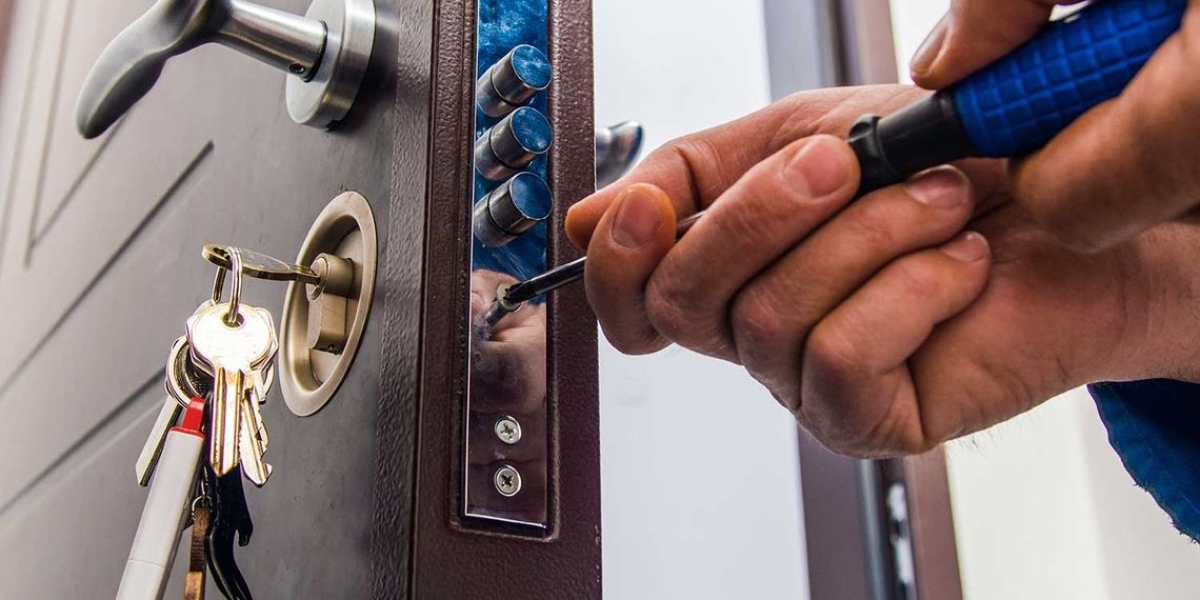In the world of electrical and industrial applications, Adaptors And Reducers play a crucial role in maintaining efficiency, safety, and flexibility. These components are indispensable in enabling seamless connections across different sizes and types of conduits, cables, and fittings. At Cabex India, we specialize in delivering high-quality adaptors and reducers designed to meet the needs of diverse industries.
Understanding Adaptors and Reducers
Adaptors and reducers are mechanical devices used to connect components with varying sizes or threads. Their primary function is to ensure compatibility between mismatched elements in a system. While adaptors facilitate connections between dissimilar threads or standards, reducers are specifically designed to link larger-sized components to smaller ones.
Types of Adaptors
1. Male-to-Female Adaptors
These adaptors have a male thread on one end and a female thread on the other, making them suitable for connecting different threaded fittings.
Key Features:
- Available in various thread types such as BSP, NPT, and Metric.
- Constructed from durable materials like brass, stainless steel, and aluminum.
- Ideal for environments requiring high-pressure or temperature resistance.
Applications:
- Oil and gas pipelines.
- Hydraulic systems.
- Chemical processing plants.
2. Thread Conversion Adaptors
Thread conversion adaptors allow the integration of fittings with incompatible thread types, such as BSP to NPT or Metric to PG.
Key Features:
- Enables cross-standard compatibility.
- Ensures leak-proof connections.
- Available in corrosion-resistant materials.
Applications:
- Industrial machinery.
- Electrical enclosures.
- Offshore installations.
3. Conduit Adaptors
Conduit adaptors are used to connect electrical conduits of different sizes or materials, such as PVC to metal conduits.
Key Features:
- Supports diverse conduit systems.
- Provides secure and weatherproof sealing.
- Suitable for indoor and outdoor use.
Applications:
- Construction sites.
- Data centers.
- Residential and commercial wiring.
Types of Reducers
1. Threaded Reducers
Threaded reducers are designed to connect components with varying thread diameters while maintaining a tight and secure seal.
Key Features:
- Precision-engineered threads for leak-proof performance.
- Available in straight or hexagonal designs for easy installation.
- Suitable for high-pressure systems.
Applications:
- Plumbing systems.
- Industrial automation setups.
- HVAC systems.
2. Compression Reducers
Compression reducers use compression fittings to connect tubes or pipes of different sizes, ensuring a tight and durable connection.
Key Features:
- Provides excellent sealing against leaks.
- Works well with metallic and non-metallic pipes.
- Resists mechanical vibrations and stress.
Applications:
- Gas and liquid transportation.
- Refrigeration systems.
- Pharmaceutical manufacturing units.
3. Flexible Reducers
Flexible reducers are crafted from materials like rubber or silicone, allowing them to accommodate minor misalignments or movements in piping systems.
Key Features:
- Resistant to chemical and environmental factors.
- Easy to install and maintain.
- Suitable for dynamic applications.
Applications:
- Wastewater treatment plants.
- Marine applications.
- Food and beverage production lines.
Materials Used in Adaptors and Reducers
- Brass: Known for its corrosion resistance, strength, and versatility.
- Stainless Steel: Ideal for applications requiring high durability and resistance to harsh conditions.
- Plastic: Lightweight and cost-effective, suitable for low-pressure systems.
- Aluminum: Combines lightweight properties with excellent thermal conductivity.
How to Choose the Right Adaptor or Reducer
1. Compatibility
Ensure that the adaptor or reducer matches the thread type, size, and standard of the components you are connecting.
2. Material
Select a material that suits the environmental conditions and application requirements. For example, stainless steel is ideal for corrosive environments, while brass offers a balance of durability and cost-effectiveness.
3. Certification
Look for products that comply with industry standards such as ISO, ATEX, or IECEx, ensuring safety and reliability.
4. Application Needs
Determine whether your system requires resistance to pressure, temperature, chemicals, or vibrations, and choose components accordingly.
Advantages of Using Adaptors and Reducers
- Versatility: Adaptors and reducers enable the integration of diverse components, expanding the scope of system designs.
- Cost-Efficiency: By eliminating the need for custom parts, they reduce overall installation costs.
- Enhanced Safety: High-quality products ensure leak-proof connections, preventing accidents and downtime.
- Ease of Installation: Their modular design simplifies the assembly process, saving time and effort.
Industries Benefiting from Adaptors and Reducers
- Oil and Gas: Ensuring safe connections in pipelines and storage facilities.
- Construction: Supporting electrical conduit installations.
- Automotive: Facilitating efficient fluid and gas transport systems.
- Renewable Energy: Connecting solar panels and wind turbines to electrical grids.
- Manufacturing: Providing seamless integration in assembly lines and processing units.
Why Choose Cabex India for Adaptors and Reducers?
At Cabex India, we are committed to delivering products that meet the highest standards of quality and performance. Here’s what sets us apart:
- Extensive Product Range: We offer a wide variety of adaptors and reducers to suit every application.
- Certified Excellence: All our products adhere to global standards, ensuring safety and reliability.
- Custom Solutions: We provide tailored products to meet unique customer requirements.
- Unmatched Support: Our team of experts is always available to guide you in selecting the right components for your needs.
FAQs About Adaptors and Reducers
1. What is the primary difference between adaptors and reducers?
Adaptors connect components with different thread types or standards, while reducers link components of varying sizes.
2. Can adaptors and reducers be used in hazardous environments?
Yes, products certified under ATEX or IECEx standards are designed for use in hazardous areas.
3. Are stainless steel reducers resistant to corrosion?
Stainless steel reducers offer excellent resistance to corrosion, making them suitable for harsh environments.
4. How do I choose the right thread type for my application?
Identify the thread standard (BSP, NPT, or Metric) and size of the components you are connecting before selecting the adaptor or reducer.
5. Do you offer customized adaptors and reducers?
Yes, at Cabex India, we provide customized solutions to meet specific industrial requirements.
Conclusion
Adaptors and reducers are indispensable components that ensure seamless connections and operational efficiency in various systems. Understanding their types, materials, and applications is essential for selecting the right product for your needs. At Cabex India, we deliver high-quality solutions tailored to meet the demands of modern industries.
Explore our comprehensive range of adaptors and reducers here.









